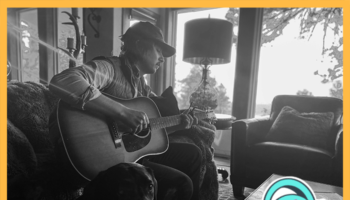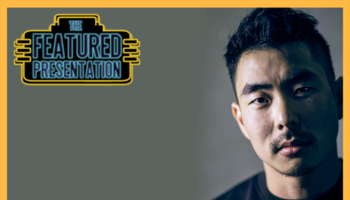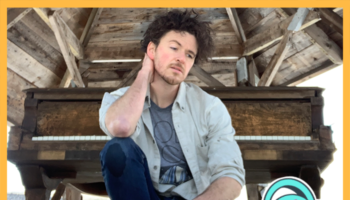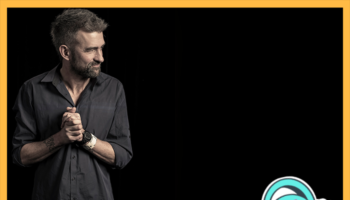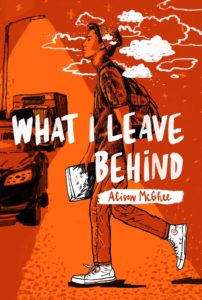 In our ongoing feature Between the Sheets, TrunkSpace picks the imaginative brains of authors to break down what it takes to create the various worlds and characters they breathe life into via the tools of their trade… sheets of paper. While technology continues to advance and change the pop culture landscape, the written word has remained one of the most consistent and imaginative art forms.
In our ongoing feature Between the Sheets, TrunkSpace picks the imaginative brains of authors to break down what it takes to create the various worlds and characters they breathe life into via the tools of their trade… sheets of paper. While technology continues to advance and change the pop culture landscape, the written word has remained one of the most consistent and imaginative art forms.
This time out we’re chatting with author Alison McGhee about her new book “What I Leave Behind,” how writing with an imposed framework is freeing, and why laughter gets her through anything.
TrunkSpace: As you gear up for the release of “What I Leave Behind,” what emotions are you juggling with? Is it difficult putting so much of yourself into something and then releasing it into the world?
McGhee: These are powerful questions because they demand honesty about a part of writing that can be fraught. The private part of me (which is most of me) wants to pretend that at this point in my life, having published quite a few books, I’m inured to the release of a new one. That I don’t read reviews and don’t care what the world thinks. But that would be a lie, because my greatest, lifelong wish as a writer is to connect with readers – to know that someone out there sees themself in my book and feels less alone, comforted, seen. The emotions surrounding “What I Leave Behind” are intense in this way, because so much of my own life and experience are infused into this novel.
TrunkSpace: Where did the concept of writing the book in 100 chapters made up of 100 words come from and how difficult was it to whittle each chapter down to that specific word count? Did it get easier the further into the book you got?
McGhee: Whenever I write a book, I create a secret structure for it. The secret structure is usually known only to me, invisible to the outside world, but it gives me a framework within which to work. For example, I’ll make a list of random objects, off the top of my head, and the rule is that all those objects need to be in the book by the time it’s finished.
With “What I Leave Behind,” I had the image of a boy who worked in a dollar store, so I went to a dollar store and took photos of a hundred items. I had the vague idea that maybe I’d write a strange little book that consisted of a photo on one side of the page and a reflection or conversation, sparked by the photo, on the flip side. That turned into 100 small reflections, because everything in a dollar store costs $1.00 (100 pennies, get it?) and then I challenged myself further to make each of those passages 100 words exactly. It was mathematical, as many of my secret structures are. (What can I say, I thrive on weird challenges.)
The unexpected beauty of this structure is that it allowed me to write chapters that felt almost like poems, and poetry is my favorite form of literature. It was a lovely challenge to make each passage as whole and finished and profound as I could while staying within the strict word limit. Strangely, it wasn’t hard for me, maybe because I love to revise and I also love to cut, cut, cut. Even when I realized that Word counts every dot in an ellipse as a word, which meant I had to go back and add three words to every passage in which I had used an ellipse, it felt like a cool challenge rather than a burden.
TrunkSpace: The book deals with some heavy subject matter, but at the same time, has plenty of moments where the light overtakes the darkness. Do you feel like that was, tonally, important to achieve a balance with and did you struggle with it at any point in the process?
McGhee: Such a good way to phrase the question – “tonally important to achieve a balance.” That’s exactly the way I felt. When you are dealing with traumatic things like suicide and rape, I think it’s essential to include lightness and laughter, if only to release the heaviness and balance the weight. That’s what actual life is like, isn’t it? I’ve gone to funerals of people I adored, when my heart felt broken into pieces, and yet at some point there’s always a moment of lightness, like when you turn to your best friend and raise your eyebrows at something that someone said, and even though you can’t stop crying you also laugh and laugh. Laughter gets me through everything.
TrunkSpace: Did the method of delivery – 100 words in 100 chapters – force you to alter your normal approach to writing? Did it take you out of your comfort zone at all, and in doing so, will it force you to rethink your own process moving forward?
McGhee: “Method of delivery” – another cool phrase. Given that I always give myself assignments when I write, like “write a picture book in the form of a sestina” or “write a novel that covers one week in time, moving only forward, beginning on Monday and ending on Sunday” – strange random assignments like that—the way I wrote the book was in keeping with my normal approach. Somehow, an imposed framework is wildly freeing to me. I realize that might sound like a paradox. If anything, the very tight framework of “What I Leave Behind” makes me want to push even further into unusual structures. I’m looking forward to what the future brings that way.
TrunkSpace: As you look back at the work, what are you most proud of when it comes to “What I Leave Behind?”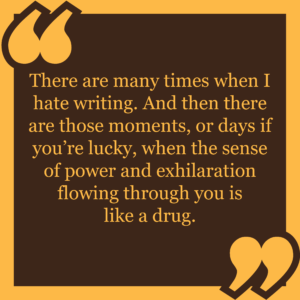
McGhee: That I put my heart on the line in every passage of this book. There is so much of me and my life in Will, and oh I hope I did that boy justice.
TrunkSpace: You call yourself a “restless writer” who is “always following inspiration wherever and however” you find it. What are you inspired by currently?
McGhee: I’m always inspired by other artists: musicians, painters, dancers. And the ordinary daily life of anywhere fills me with ideas and scenes and conversations for future books. Lately I’ve been much more focused than before on the way our society and culture are changing, for the better and for the worse. The most powerful aspect of the curious times we’re living through, to me, is how people who have been mistreated for centuries are rising up and rightly so – and how people who have always benefited from unequal power structures are either wildly pushing back or feeling themselves broken up with recognition of unfairness. It’s pretty intense. The fact that I wrote about rape in “What I Leave Behind” is a direct result of this. I’m inspired by people taking action.
That’s a pretty broad inspiration, isn’t it? “People taking action.” Reading that makes me laugh, like, “Gee, Alison, could you be more general?”
TrunkSpace: How long did it take for you to discover your voice as a writer?
McGhee: Writing and storytelling is in my genes, and I’ve written stories my entire life, beginning when I was six and learned how to print. But finding my true voice as a writer took a long, long time. I distinctly remember waking up one morning, when I was 33 years old, with the phrase “that baby” in my mind and the image of a child lying in a crib in a trailer, looking up at the black and white reflection of Venetian blinds on the ceiling. That same morning, I sat down and wrote a strange piece that began with the lines “Babies don’t get born in North Sterns. They just appear, like corn on a hard dirt road. Like dust. Like love.” I remember a feeling of power surging through me, through my fingertips on the keyboard. I knew that something in me had changed, and that anything I wrote from that moment forward was going to be better, more assured, than anything I had written before. It was a strange realization. Sometimes I think that the creative process happens in its own time. It doesn’t go according to calendar time, or human lifetime. For years and years and years, things build inside us, and then one day we wake up and we’re at a different plane of existence.
TrunkSpace: Regarding the process, is writing a labor of love for you or does it feel more like labor? Do you enjoy the process?
McGhee: The process of writing, of making art of any kind I suppose, is both a labor of love and hard, hard work. I wish it were easier for me, but it’s not. Every day I have to corral myself, make myself sit down in that damn chair and start spinning out words. Creating lives. Conjuring people and places and things. There are many times when I hate writing. And then there are those moments, or days if you’re lucky, when the sense of power and exhilaration flowing through you is like a drug. I’ve never done heroin, but when I hear the descriptions of what the first time is like, I always think, I know that feeling.
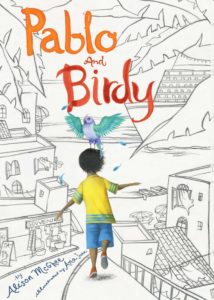 TrunkSpace: And what does that process look like? What are the ideal conditions for putting in a good day of writing?
TrunkSpace: And what does that process look like? What are the ideal conditions for putting in a good day of writing?
McGhee: Such a great question. The ideal conditions involve waking up when I wake up, making a single perfect cup of coffee, easing into the day by reading at least four poems (they’re the first bookmarks I turn to when I open my laptop), making a list of all the to-dos for the day, and then shutting out the world and spinning out words and words and words. Note: that perfect day rarely happens. It’s astonishing how skilled I am at procrastination, like, “Oh, you better put in a load of laundry” or, “Oh, you really should check Instagram to see what We Rate Dogs is up to,” or, “Hey, it’s supposed to get really hot this afternoon you better go for your run now.” Etcetera ad infinitum.
TrunkSpace: Do you self-edit as you write?
McGhee: When I’m drafting, I don’t edit at all. I’m just grinding out words, usually 1000-3000 per day. It’s kind of like making the granite from which you’ll later hew a sculpture. At some point, I’ve got a ton of words, and then it’s time to buckle down and really see what’s going on. When I finally begin to cut and frame and revise – to turn the big mess into an actual book – then I self-edit nonstop. The inner critic is a dear personal friend of mine.
TrunkSpace: Where are you the hardest on yourself as a writer?
McGhee: Pretty much everywhere. (Sad face.) Maybe most of us are harder on ourselves than we are on others. Or maybe it’s how most of us are when it comes to the things that matter most to us, and my art matters profoundly to me. The result is that I’ve dreamed of writing a truly beautiful book my whole life long, and that truly beautiful book is still out there, shimmering in the air ahead of me, almost but not quite visible. Almost but not quite real. Maybe it never will be.
TrunkSpace: What are you working on now and what will people be able to read next?
McGhee: I spent the winter rewriting a new novel, tentatively titled “Hard Things, Beautiful Things, Things that Can’t Be Borne.” It’s for adults and older teens and it will be published in the fall of 2019. I’m also working on a new young adult novel, set in Minneapolis and tentatively titled “Our Nameless Café.”
“What I Leave Behind” is available today from Atheneum/Caitlyn Dlouhy Books.


